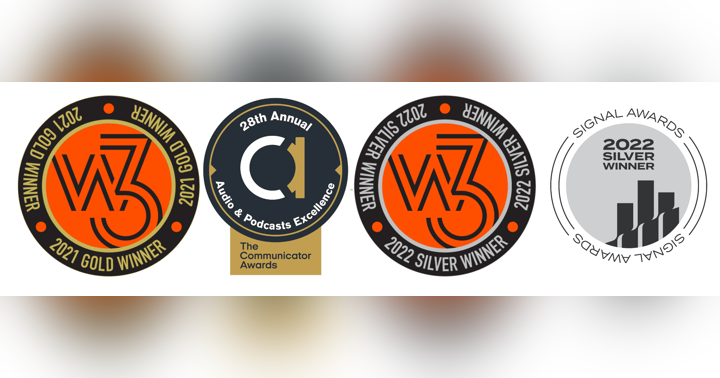The Culture of Why

Do you ever struggle with motivation? How about your team? Have you found yourself making inspirational speeches at meetings or designing incentive programs to keep things moving along? Finding the energy to do what needs to be done can be a challenge. Throw in a worldwide pandemic, political unrest, and whatever personal circumstances your team members are going through and it becomes even harder. It may surprise you that the key to motivation isn’t found in emotion or prizes, but in one three-letter word: why.
Why do you get up each day? Why do you show up for work? Why did you want this job in the first place? So often we get distracted and consumed by the day-to-day activities of life. Go here. Do that. I think we get so wrapped up in the tasks in front of us that we forget why we are doing them. When we lose touch with our why, we turn into someone whose sole focus is to check boxes. Read emails. Check. Update tracking sheet. Check. Reach out to HR on that thing. Check. Eat lunch. Check. And so on.
In western society, and especially in the professional, working world, we suffer from what I call the dominant, toxic culture. These are aspects of the foundations of our culture that drive us to try to be, or at least look, perfect. It says that we must have a sense of urgency, even when nothing truly urgent is happening. Remember the exercise I asked you to do in TNG’s Elementary, Dear Data (blog or podcast) I asked you to categorize the things you do as critical, urgent, or routine. I highly recommend it. It transformed the entire culture of an organization I worked at.
This dominant, toxic culture also encourages people to be defensive, leaders to be paternal or maternal, progress to mean bigger, faster, cheaper, and the written word to be valued above all else. This leaves us in a culture where there is only one correct way to do things. We move from task to task with an inflated sense of urgency and an inflated sense of importance, all while believing that the person who checks the most boxes the fastest wins. But that’s simply not true. When we live in this culture, we lose the awe of the amazing things we do. We also squash innovative thinking. I’m going to guess that somewhere in the neighborhood of 98% of all employers are driven by this dominant, toxic culture – and most of them don’t even know it! It’s just part of the base DNA of society. The kicker is that these companies tell you they value innovation and out-of-the-box thinking. But if everything is an urgent emergency and I am mandated to follow a specific, paint-by-numbers set of processes that are well documented and treated with near-religious fervor…how am I ever supposed to innovate?
These are the reasons why rejecting the dominant, toxic culture and embracing a culture of why are so important. Identifying your why is a powerful tool that you and your team need. And not just a surface level why. Why do you show up for work? Because I need money. But your deepest why. Here’s another practice for you. Try the 7 Levels of Why. It’s as simple as asking “Why?” seven times. You can start with your current role to find motivation in what you’re doing now. Or you can start with your career goal to find the motivation to keep moving forward. For example, I want to be a CFO or regional manager or own my own business. Whatever is true for you. Then ask yourself, “Why?” five times until you get to the root of your desire:
I want to be a regional manager.
Why?
Because I want to be in a position that has enough authority to enact change.
Why?
Because I want my ideas to matter.
Why?
Because I feel alive when I’m bringing my ideas into existence.
Why?
And so on. Be honest with yourself. There’s no point in making things sound good if they’re not true (remember we’re rejecting the dominant, toxic culture’s demand for perfectionism). Once you get down to your seventh level why you’ll have a good idea of what is really motivating you. And when the days are hard you can pull out your why to find the motivation to keep going toward your goal. Lead your team in this practice to discover their why as well.
As a leader, you have to remind the people you work with why they’re here. Let me give you one example of how this can make a difference in your workplace. Take McDonald’s for instance. If you’re a manager there it would be so easy to just focus on your metrics. Get cars through the drive-through within x amount of time, get y number of combos sold per shift, and pull in z dollars for the Ronald McDonald House. And that’s kind of what we all think when we think about working at McDonald’s isn’t it? I envision some poor crew manager getting upset with me and yelling at me as I head to break because my average order taking time is 21 seconds, “Get that down to 17 or you’ll be on the street!”
But if I’m working for an effective manager, one that understands they have the responsibility of connecting me to my why, they’re going to constantly talk about the mission. The why for the company. Do you know McDonald’s mission statement? Yesterday I didn’t know. But now I do and I am kind of blown away. Here it is: To be our customer’s favorite place and way to eat and drink. How cool is that? Now if that crew manager is coming at me because of my bad order times in drive-thru, but with lines like, “Akin! Would your favorite place to eat take that long to get your order?” I’m going to be a lot more apt to listen.
Your why matters. It matters a lot more than a list of tasks. And at the end of the day, it's the only thing that will really move the needle for you and your team. So spend the time to understand your personal why. Become incredibly comfortable with your company's why. And be sure to connect your team with that why every day.


